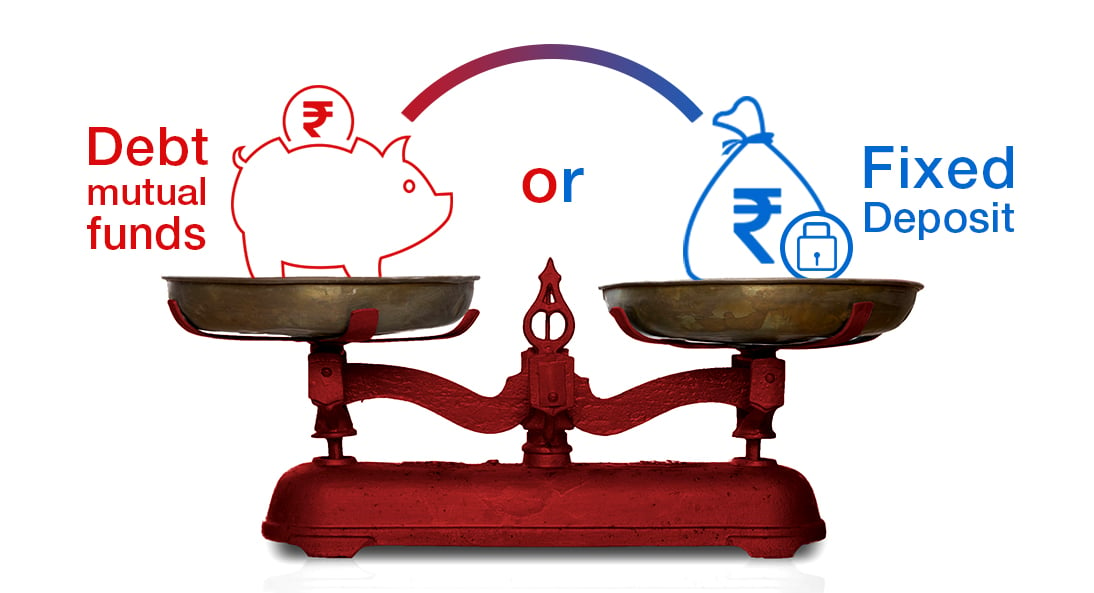Should You Invest In FDs Or Debt Funds?
HDFC, Tester
Should You Invest In FDs Or Debt Funds?
The value of thrift has been ingrained in us since childhood. First with the piggy bank, and then as we grew up, the switch to the good old FD or fixed deposits. FDs are considered safe and reliable when compared to volatile market-oriented investments like shares.
True, FDs give you the comfort of safe and steady returns, but an increasingly number of savvy investors are turning to debt funds, for a combination of safety and returns.
Debt funds offer better pre- and post-tax returns than FDs at marginally higher risk.You can choose from a wide variety of debt funds based on your risk appetite.
Returns
The interest on your FD is fixed at a predetermined rate depending on the tenure while returns on debt mutual funds (mutual funds that invest in debt instruments like government securities, corporate bonds and treasury bills) depend on how interest rates in the market move.
Generally, the returns on debt funds are likely to be slightly higher than fixed deposits, especially when interest rates are falling. FDs may fetch you anything in the range of 6-8 % or about 5-6%post-tax. Debt funds could give you 7-8% returns on average, and good funds could give returns in the range of 10-11%
Predictability
Here, FDs win slightly over debt funds. The performance of debt funds depends on how the interest rates move whereas the rate of interest on your FD is fixed at the start of the tenure. Debt funds perform better in an economy where the interest rates are falling. Falling interest rates push up the prices of bond papers, leading to an increase in the fund NAV or net asset value. When interest rates rise, bond yields decline, and debt funds underperform.
Risk
Debt funds come with higher interest or credit risk than fixed deposits. For greater safety and to minimize risk, you can put your money in debt funds that invest in AAA-rated securities (the highest-rating possible). The returns in these funds will be in line with FDs.
Liquidity
Debt funds have the edge here. You can buy or sell a debt fund any time you want. Some debt funds may have an exit load if you sell within a period. Fixed deposits come with a fixed term, and a premature withdrawal attracts a penalty.
Liquid debt funds are the best option for liquidity and have no exit loads.
Tax-saving FDs have a five-year lock.
Taxation
The interest income on your FDs is taxed according to your tax slab. You pay 10% if you are in the 10% tax slab and 30% if you are in the highest bracket.
Debt funds attract capital gains. If you redeem a debt fund before three years, you will have to pay short-term capital gains according to your tax slab. If you hold it for more than three years, you must pay at 20% with indexation (which is an adjustment for inflation and reduces your tax liability)
Whether you pick FDs or debt mutual funds should depend on how much risk you are looking to take,expected movement of interest rates, liquidity needs, time horizon of investment and your financial goals.
Related Posts
Don't miss another Article
Subscribe to our blog for free and get regular updates right into your inbox.
Categories
newsletter
 HSL Mobile App
HSL Mobile App 



